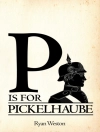In 'Dr. Thorndyke His Famous Cases, ’ Richard Austin Freeman masterfully melds the elements of detective fiction with the precision of forensic science, creating a collection that is both intellectually stimulating and entertaining. Freeman’s distinctive narrative style seamlessly weaves together intricate plots featuring the esteemed medico-legal investigator, Dr. Thorndyke, whose remarkable deductive abilities shine in a series of captivating cases. This work not only reflects the period’s burgeoning interest in scientific methodology but also stands as a significant contribution to the detective genre, showcasing Freeman’s innovative approaches to crime-solving, particularly through the integration of medical and scientific expertise. Richard Austin Freeman, a pioneer in the field of forensic fiction, drew upon his background in medicine and law to create compelling narratives that resonate with authenticity. His experiences in the medical profession offered him a unique perspective on criminal investigation, informing Dr. Thorndyke’s methodologies and making him a groundbreaking figure in early 20th-century literature. Freeman’s background not only enriched his storytelling but positioned him as a forerunner in melding literary artistry with scientific inquiry, setting the stage for later generations of crime writers. For readers drawn to intricately plotted mysteries enriched with scientific insight, 'Dr. Thorndyke His Famous Cases’ is a must-read. Freeman’s work is not merely a collection of stories; it invites readers into the fascinating interplay of crime and science, ensuring that they are not only engaged but also challenged to reflect upon the nature of evidence and justice. This classic collection offers both entertainment and edification, making it essential for fans of the genre.
O autorze
Richard Austin Freeman (1862-1943) was a distinguished British writer of detective fiction, renowned for his creation of the fictional forensic investigator, Dr. John Thorndyke. A pioneer in incorporating medical and scientific accuracy into the mystery genre, Freeman’s work influenced and laid the groundwork for the modern procedural detective story. Educated as a physician and surgeon, Freeman practiced in West Africa for a time, an experience that enriched his writing with authentic detail and exotic settings. On returning to England, Freeman shifted from medicine to law and then found his true calling in writing when he introduced Dr. Thorndyke in his first novel, 'The Red Thumb Mark’ (1907). His meticulous approach, combining deductive reasoning with cutting-edge forensic methods, set his works apart. Notable works include the collection 'Dr. Thorndyke His Famous Cases’ which showcases Freeman’s mastery in crafting tales around the inimitable detective that resonated with readers’ fascination for science applied to crime-solving. His literary style is marked by an attention to the nuances of legal procedure, scientific investigation, and careful plotting that often highlighted the miscarriages of justice that could be overturned by Thorndyke’s scientific approach. Freeman’s contributions to the genre have been acknowledged as an integral part of the development of the scientific detective in literature and remain a significant touchstone in the study of early 20th-century crime fiction.












